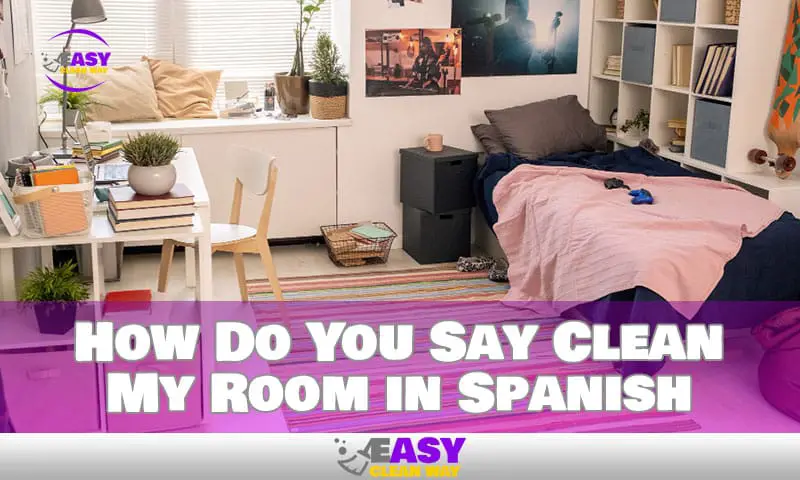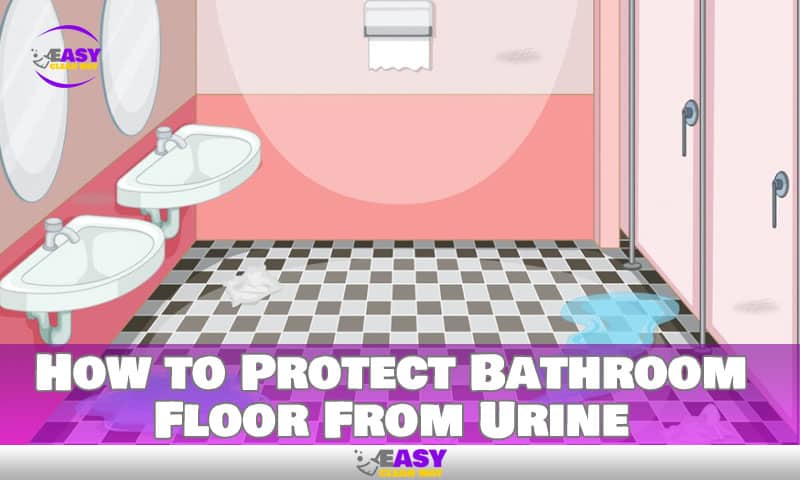Whether you’re a Spanish student or an aspiring home-cleaning expert, you’ve probably wondered how to say “clean my room” in Spanish. After all, it’s an integral part of your daily routine. From tidying up after yourself to scrubbing the bathtub, cleaning is a skill that we all need to master.
Fortunately, there are numerous ways to express this in Spanish. Depending on how formal or informal you want to be, you can say something like “limpia mi cuarto,” “haz limpieza en mi cuarto,” or even just “limpia.”
In this article, we’ll explore the different ways of asking someone (or yourself!) to clean your room in Spanish. We’ll also delve into some helpful cleaning-related vocabulary so that you can make sure your house is shining from top to bottom.
Basics of Saying ‘Clean My Room’ in Spanish
Learning the basics of Spanish is a great way to broaden your horizons. Even if you only know a few basic phrases, such as “clean my room,” you can still make yourself understood when traveling or communicating with Spanish speakers.
So just how do you say “clean my room” in Spanish? The main phrase is “Limpia mi habitación.” This literally translates as “Clean my room.” However, there are a few variations on this phrase that allow for more nuance and context.
For example, you can use the phrase “Asegura mi habitación,” which means “Secure my room.” This could be used to convey the idea of cleaning up while also making sure everything is in its place. You could also use the phrase “Ordena mi habitación,” which translates to “Organize my room.” This implies more than just tidying and sweeping—you’re asking someone to arrange your possessions into an orderly structure.
Regardless of which phrase you choose, take your time to practice it until you feel confident using it with native Spanish speakers.
Different Ways to Ask Someone to Clean Your Room in Spanish
Just like English, Spanish has a few variations on how you can ask someone to clean your room. Here are some of the most common ways to say it:
- “Limpia mi habitación.” This phrase translates directly to “Clean my room,” and is the clearest way to make your request.
- “Por favor, arréglame la habitación.” This phrase is more polite than the first one and translates to “Please, make my room neat.”
- “Pon orden en mi habitación.” This one literally means “Put order in my room,” and expresses that you would like your space tidied up.
Still uncertain which phrase is best? The simplest approach is usually the best one—stick with “Limpia mi habitación” when you need someone else to help you with cleaning up your space.
Basic Cleaning Commands in Spanish
The next step in learning Spanish is to learn how to say basic cleaning commands in the language. You can start by asking someone to “clean my room” in Spanish, which is “limpia mi habitación” (pronounced leem-pee-ah mee ah-bah-tee-ahn).
You can also use other basic commands, like:
- “Limpia la ventana” (pronounced leem-pee-ah lah vehn-tah-nah) which means “clean the window.”
- “Barre el suelo” (pronounced bahr-ray el swoh-loh) which means “sweep the floor.”
- “Quita la ropa sucia” (pronounced kee-tah lah roh-pah suckiah) which means “take out the dirty laundry.”
These are just a few examples of basic commands you can use to ask someone to clean your room in Spanish. Once you get good with these phrases, you’ll be able to communicate more easily with Spanish speakers and even use them in everyday conversations.
Different Levels of Cleanliness in Spanish
Another thing you might not know is that there are actually different ways to say “clean my room” in Spanish, depending on how clean you want it to be. For example, if you just want your room to be tidy and organized, you would say “Ordena mi cuarto”. If you want it to sparkle, then the phrase “Limpia mi cuarto” is what you’d use instead.
Ordenar vs Limpiar
In Spanish, the verb “ordenar” is used for tidying up and organizing things in a place where everything has been put away but may not be actually clean. On the other hand, the verb “limpiar” means to actually clean something, which implies removing dust, dirt, and debris from surfaces.
So the next time you need to tell someone in Spanish to clean your room, remember that there’s more than one way to do it! Use “Ordena mi cuarto” if all you need is tidying up, or use “Limpia mi cuarto” if your room needs a good scrubbing.
Colloquial Ways to Ask Someone to Clean Your Room in Spanish
If you’re looking for a more casual or colloquial way to ask someone to clean your room in Spanish, there are a few phrases you can use. For example, you can say “¿Puedes arreglar mi cuarto?” (pronounced poo-eddes ah-rrreg-lahr mee kwah-rtoh) which means “Can you fix up my room?” or “¿Me puedes ayudar a limpiar mi cuarto?” (pronounced meh poo-eddes eye-oodahr ah leem-pee-ahr mee kwah-rtoh) which means “Can you help me clean my room?”
While these phrases are less formal, they may be more effective in getting the results you need! Remember that asking someone to do something in Spanish using polite and respectful language will help you receive better responses.
Now you know different ways to ask someone to clean your room in Spanish, as well as the different levels of cleanliness and the colloquial phrases you can use. Understanding how to say this in Spanish can help you communicate better with Spanish speakers and make sure your room is always looking its best.
Tips for Remembering How to Say ‘Clean My Room’ in Spanish
To help you remember the different phrases for asking someone to clean your room in Spanish, here are a few tips:
- Use “Ordena mi cuarto” when you just need tidying up.
- Use “Limpia mi cuarto” when you need a deep cleaning.
- Use more colloquial phrases such as “¿Puedes arreglar mi cuarto?” and “¿Me puedes ayudar a limpiar mi cuarto?” when you’re speaking to someone informally.
- Speak politely and respectfully to get better responses.
By following these tips, you should have no problem remembering the different phrases for asking someone to clean your room in Spanish. With these phrases at your disposal, you can stay on top of your cleaning needs and make sure your room is always looking its best.
Practicing the Pronunciation of ‘Clean My Room’ in Spanish
To help you remember the pronunciation of the phrases for asking someone to clean your room in Spanish, there are a few things you can do. For example, you can use a dictionary to look up the words and practice saying them out loud. You can also search for audio clips of native Spanish speakers saying the phrases so you can mimic their pronunciation.
Another great way to practice is to find an online Spanish course or even an app that can help you with your pronunciation. With these resources, you can practice the phrases until you feel comfortable using them.
Finally, you can also reach out to native Spanish speakers or people who are fluent in the language and ask them how to pronounce the phrases correctly. This can be a great way to get personalized practice and feedback.
By following these tips, you can practice the pronunciation of the phrases for asking someone to clean your room in Spanish until you feel confident using them. With the right pronunciation, you can make sure your message is understood and get the results you need.
People Also Like: Cleaning Your Slate Roof: A Step-By-Step Guide for Homeowner
Conclusion
As you can see, Spanish is not only an incredibly rich language but also steeped in culture and tradition. Knowing the right way to ask someone to clean their room in Spanish is important to make sure you are showing respect. Whether you’re going to use the command form, the polite polite form, or the softening expressions, you can be sure that everyone will know what you mean and how to respond.
Take the time to really understand the nuances of when to use which form and how to say “clean my room” in Spanish so that you can get the most out of your language learning experience and communicate effectively with native speakers. ¡Buena suerte!
Hey there! I’m Alton Smith, your Clean Expert blogger. I’m on a quest to help you conquer chaos and embrace the joys of a tidy life.





